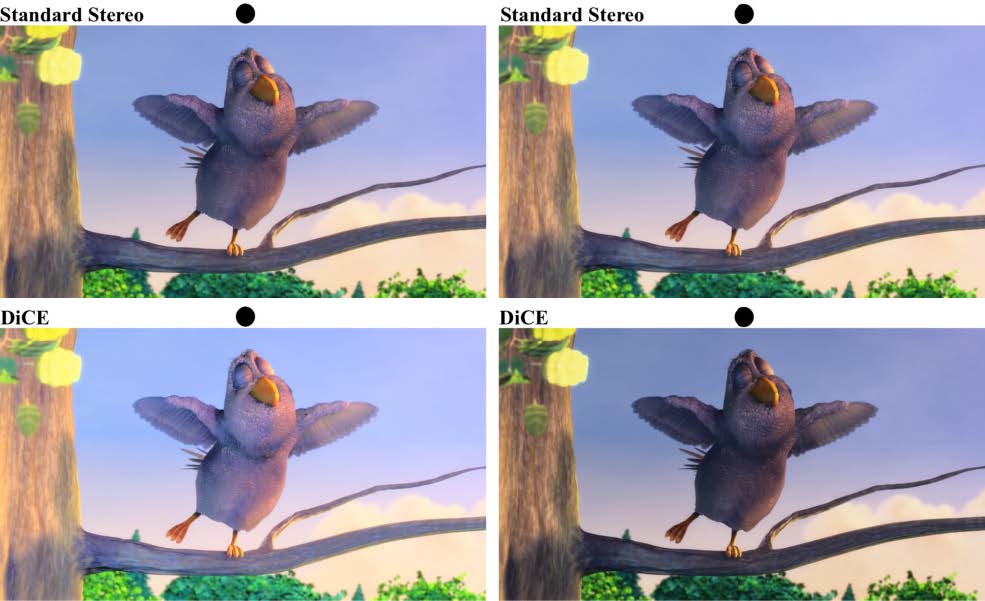“DiCE: Dichoptic Contrast Enhancement for Binocular Displays” by Zhong, Banks, Koulieris, Chambe, Mantiuk, et al. …
Conference:
Type(s):
Title:
- DiCE: Dichoptic Contrast Enhancement for Binocular Displays
Presenter(s)/Author(s):
- Fangcheng Zhong
- Martin (Marty) S. Banks
- George Alex Koulieris
- Rafal K. Mantiuk
- George Drettakis
- Frédo Durand
Entry Number: 36
Abstract:
In stereoscopic displays, such as those used in VR/AR headsets, our two eyes are presented with different views. The disparity between the views is typically used to convey depth cues, but it could be used for other purposes. We devise a novel technique that takes advantage of binocular fusion to boost perceived local contrast and visual quality of images. Since the technique is based on fixed tone-curves, it has negligible computational cost and it is well suited for real-time applications, such as VR rendering. To control the trade-of between the level of enhancement and binocular rivalry, we conduct a series of experiments that lead to a new ending, explaining the factors that dominate the rivalry perception in a dichoptic presentation where two images of different contrasts are displayed. With this new ending, we demonstrate that the enhancement can be quantitatively measured and binocular rivalry is well controlled.
References:
- Gordon E Legge and Gary S Rubin. 1981. Binocular interactions in suprathreshold contrast perception. Attention, Perception, & Psychophysics 30, 1 (1981), 49?61.
- Peter Vangorp, Rafat K Mantiuk, Bartosz Bazyluk, Karol Myszkowski, Rados?aw Mantiuk, Simon J Watt, and Hans-Peter Seidel. 2014. Depth from HDR: depth induction
or increased realism?. In ACM Symposium on Applied Perception – SAP ?14. ACM Press, New York, New York, USA, 71?78. https://doi.org/10.1145/2628257.2628258 - Xuan Yang, Linling Zhang, Tien-Tsin Wong, and Pheng-Ann Heng. 2012. Binocular Tone Mapping. ACM Transactions on Graphics 31, 4, Article 93 (July 2012), 10 pages. https://doi.org/10.1145/2185520.2185589
- Zhuming Zhang, Xinghong Hu, Xueting Liu, and Tien-Tsin Wong. 2018. Binocular Tone Mapping with Improved Overall Contrast and Local Details. Comput. Graph. Forum 37, 7 (2018), 433?442. https://doi.org/10.1111/cgf.13580
Keyword(s):
Acknowledgements:
This project has received funding from the European Research Council (ERC) under the European Union’s Horizon 2020 research and innovation programme (grant agreement n◦ 725253śEyeCode).





